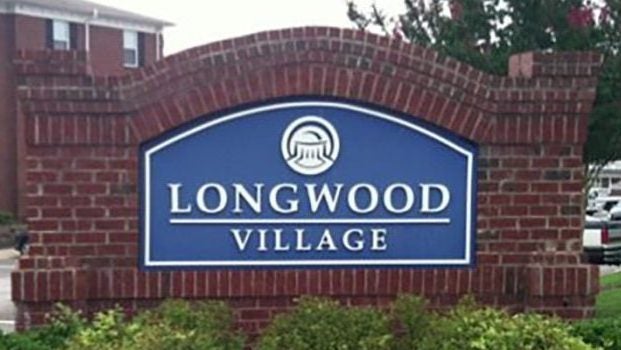Housing group moves forward with Longwood Village plans
Published 4:10 am Wednesday, May 17, 2023

- The Longwood Village apartments will be repurposed. Students were notified Thursday, Feb. 13 that the village will no longer be available for housing in the coming academic year.
|
Getting your Trinity Audio player ready...
|
FARMVILLE – Studies are being done. Engineers have examined the property. While multiple groups discuss ideas for the future of Longwood Village, the Richmond-based nonprofit Better Housing Coalition (BHC) is moving forward with their own.
First off, some background. When we say Longwood Village, that’s referring to the property on Clark Street in Farmville, behind Sheetz. It was originally used as housing for Longwood University students, hence the name. The property covers an estimated 20 acres, with eight buildings and 96 total housing units right now. The construction is all on 10 acres, with the remaining 10 acres currently vacant.
Multiple offers have been put in to buy the property, including one back in March from the Farmville Affordable Housing Alliance. But right now, the area’s future is in the hands of the BHC.
“We have a signed purchase agreement with Longwood Foundation (for the property),” said Lynn McAteer. She serves as vice president of planning and evaluation for the BHC.
To be clear, while this puts the property “under contract”, it’s not a finished deal. A signed purchase agreement defines the terms of the sale, such as price and includes conditions that have to be met before a deal goes through. It also typically has a targeted end date, where the prospective buyer has to either go through with the purchase or back out. The Herald asked both sides as to what that date might be and didn’t receive an answer by press time.
More about Longwood Village
In the summer of 2022, the Richmond-based nonprofit BHC held a series of meetings, asking residents what they wanted to see done with the property. In those meetings, residents called for more senior housing, some additional townhouses and more commercial development. Soon after, the group started the process to draw up a purchase agreement.
On the surface, it looks like nothing much has changed since last summer. However, McAteer said her group is just doing its ‘due diligence’.
“We’ve had engineers go and walk through, to look at preliminary (needed) architecture work,” McAteer said. “We have (also) authorized a market study, one that helps us look at the average market rent and what could be done.”
A similar study was done in the area during 2019. It found one in five households in Prince Edward County earns less than $20,000 per year. Two in five earn less than $35,000 per year. At the same time, average home prices in the area necessitate an annual salary of $42,000 (for ownership) or $31,800 for rental according to the study.
There is also a housing size mismatch. Seventy-three percent of the study area’s housing units are three bedrooms or larger, while 63% of the population exists in one or two-person households. For the 4,061 one- or two-person households in the study area, there are only 1,933 studios, one-, or two-bedroom housing units. That is a gap of 2,128 smaller housing units.
And then there’s the issue of being cost burdened. The U.S. Census Bureau defines cost burdened as someone who has to pay more than 30% of their income for housing.
The problem for Farmville is that 22% of its current homeowners are cost burdened, according to that same Census study. The percentage jumps even higher when you start talking about renters. An estimated 44.8% of renters in the area fall under that label.
But again, some of those numbers come from 2019, so they’re outdated. That’s especially true when you consider the impact the pandemic had on home ownership.
What about PUDs?
But beyond that, BHC’s interest in Longwood Village has sparked discussion over how Farmville should plan for the future. That includes planned use development (PUD), a proposal which would allow developers to present construction ideas currently outside of the regular town rules. Then the planning commission and town council would decide whether or not to sign off on allowing it.
The town, meanwhile, can put in requirements, making developers set aside a certain amount of green space, or build a park. The developers would have to present a plan, hold public hearings and get approval from the commission and council before anything could move forward.
“It gives the town more control,” McAteer said. “It provides flexibility to do some things.”
The town staff have confirmed that talks with the BHC helped lead them come up with and introduce the PUD ordinance. But even so, McAteer says the group doesn’t plan to get involved with Farmville’s debates on the subject.
“We don’t really have an intention of lobbying or interfering with the PUD discussion,” McAteer said.
She also points out that even if PUD is rejected, that doesn’t mean her group’s project can’t move forward. Phase one of the plan, involving renovation of the existing buildings, could happen after a sale is finalized. As for phase two, developing the vacant land, even though the group’s current plans would involve using a PUD if it’s approved, McAteer said that’s not the only option on the table.
“It’s not like that is the only thing we could do here,” she said.
In the meantime, the BHC is in a ‘wait and see’ mode. They’re waiting for the market study to be finished and also to hear from the engineers about what renovations would cost. If all goes well, they would hope to make a decision on the property by next year, applying for grants to cover the renovation costs.




